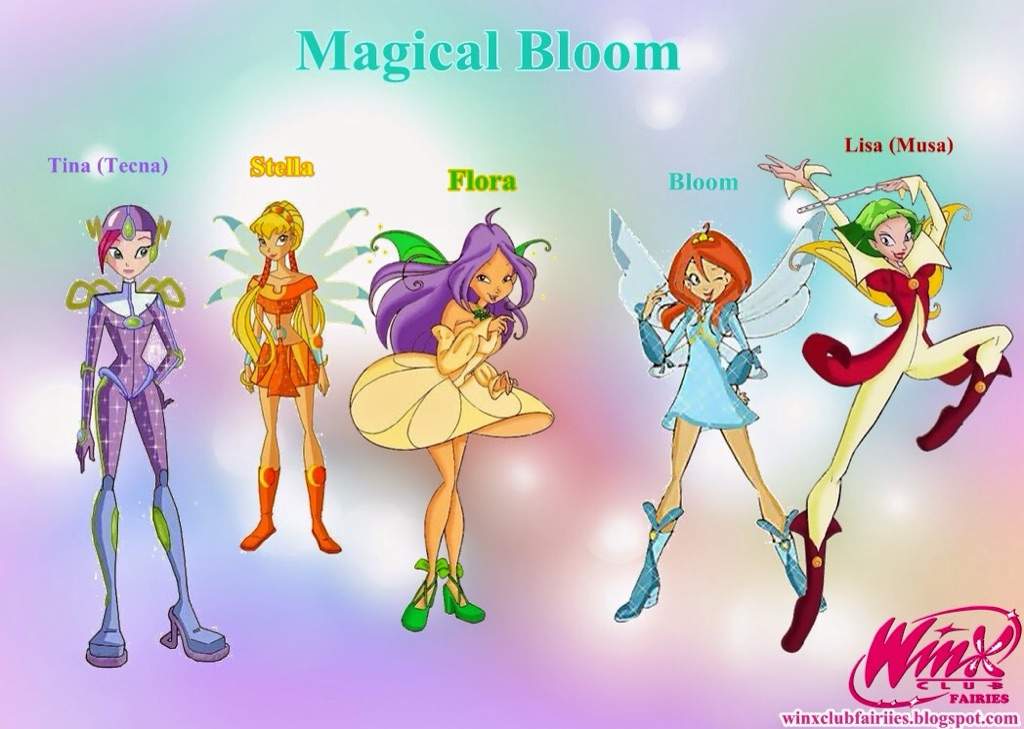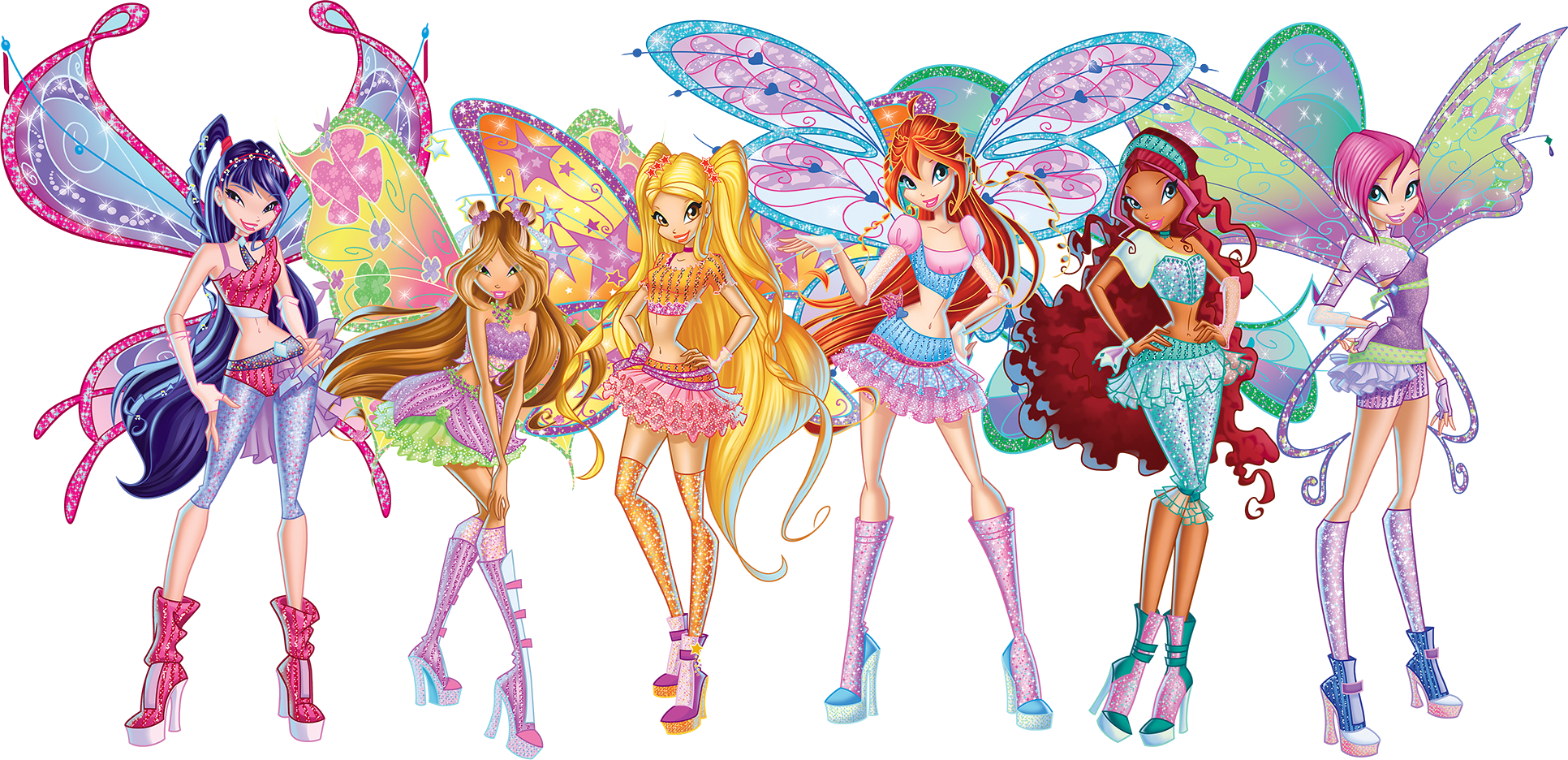Winx Club names have become a cultural phenomenon, enchanting fans around the globe with their unique charm and mystical allure. From Bloom to Stella, each name carries a story, a personality, and a magical essence that resonates with both kids and adults alike. If you’ve ever wondered about the significance behind these names or how they shape the world of Winx Club, you’re in the right place. Let’s dive in!
Winx Club has been around for over two decades now, and its popularity continues to soar. Created by Iginio Straffi, this animated series has captured the hearts of millions with its vibrant characters, exciting storylines, and, of course, those unforgettable winx club names. Whether you’re a longtime fan or just discovering the series, there’s always something new to learn about the magical universe it inhabits.
So, why are winx club names so special? Well, they’re not just random words thrown together. Each name is carefully crafted to reflect the character’s personality, powers, and journey. Think of Bloom’s fiery spirit or Musa’s musical magic—everything ties together perfectly. Stick around as we unravel the mysteries behind these magical monikers!
Read also:Janet Smollett The Untold Story Of Resilience Talent And Passion
Winx Club Names: A Brief History
Before we dive deep into the names themselves, let’s take a quick trip down memory lane. Winx Club first premiered in 2004, and it quickly became a global sensation. The show follows a group of fairy friends, known as the Winx, as they navigate school, friendship, and the challenges of protecting their world from evil forces. Over the years, the series has expanded, introducing new characters, storylines, and, yes, more winx club names.
Each season brings fresh adventures and deeper character development. The creators didn’t just slap random names on the characters; instead, they thoughtfully designed each name to align with the character’s backstory and powers. This attention to detail is one of the reasons why fans love the series so much. It’s not just about the magic—it’s about the meaning behind it all.
For example, did you know that Bloom’s name was inspired by flowers? It’s a subtle nod to her connection with nature and her role as the Chosen One. Meanwhile, names like Stella and Musa are derived from celestial and musical themes, respectively. These little details make the world of Winx Club feel rich and authentic.
The Main Winx Club Names
Now, let’s get down to business. Here are the main winx club names and what makes them so special:
- Bloom: The leader of the Winx and the Chosen One. Her name symbolizes growth, transformation, and renewal.
- Stella: The fairy of the Sun and Moon. Her name reflects her celestial powers and radiant personality.
- Musa: The fairy of Music. Her name is a nod to her musical abilities and her love for harmony.
- Tecna: The fairy of Technology. Her name suggests precision, innovation, and tech-savviness.
- Flora: The fairy of Nature. Her name perfectly aligns with her connection to plants and animals.
- Aisha: The fairy of Water. Her name is inspired by her aquatic powers and adventurous spirit.
These six names form the core of the Winx Club, and each one tells a story. They’re not just labels—they’re integral parts of the characters’ identities.
Winx Club Names and Their Meanings
Names hold power, and in the world of Winx Club, they hold a lot of it. Let’s break down the meanings behind some of the most iconic winx club names:
Read also:Orphanage Jokes Finding Laughter In Heartwarming Stories
Bloom
Bloom’s name is a metaphor for growth and transformation. As the Chosen One, she undergoes significant changes throughout the series, both personally and magically. Her journey mirrors the blooming of a flower—starting as a seed and growing into something beautiful and powerful. It’s a name that perfectly encapsulates her role in the story.
Stella
Stella means “star” in Latin, and it couldn’t be more fitting. As the fairy of the Sun and Moon, Stella’s powers are tied to celestial bodies. Her name reflects her bright, bubbly personality and her ability to light up any room she enters. Plus, who doesn’t love a good star reference?
Musa
Musa is derived from the word “muse,” which means a source of inspiration. As the fairy of Music, she uses her powers to create harmony and bring people together. Her name is a nod to her artistic nature and her ability to inspire others through her music.
Secondary Winx Club Names
While the main six winx club names are the most well-known, there are plenty of other characters with equally fascinating names. Let’s take a look at some of them:
Tecna
Tecna’s name is a clever play on words, combining “tech” and “technique.” As the fairy of Technology, she’s all about precision and innovation. Her name reflects her love for gadgets and her ability to solve problems with tech-based solutions.
Flora
Flora’s name is a direct reference to nature. As the fairy of Nature, she has a deep connection to plants, animals, and the environment. Her name is a reminder of her gentle, nurturing personality and her role as the heart of the Winx Club.
Aisha
Aisha’s name is inspired by her aquatic powers and her adventurous spirit. It’s a name that exudes strength and independence, perfectly matching her character. Whether she’s swimming through magical waters or exploring new worlds, Aisha always brings her A-game.
Winx Club Names in Popular Culture
Winx Club names have made their way into popular culture in a big way. Fans around the world have embraced these names, using them as inspiration for everything from baby names to social media handles. It’s not uncommon to see people naming their pets or even their businesses after their favorite winx club characters.
Why do these names resonate so much? Part of it is the creativity behind them. Each name feels unique and meaningful, yet approachable enough for everyday use. Plus, the series itself has a universal appeal, transcending age, gender, and cultural boundaries. Whether you’re a kid or an adult, there’s something about winx club names that just clicks.
The Impact of Winx Club Names
Winx Club names have had a lasting impact on fans and the entertainment industry as a whole. They’ve set a standard for character naming in animated series, proving that a name can be more than just a label—it can be a defining feature of a character. This level of thoughtfulness is one of the reasons why Winx Club has stood the test of time.
Moreover, the series has inspired countless creators to think more deeply about the names they choose for their characters. It’s a reminder that names have power, and they can shape how audiences perceive and connect with a story. For fans, winx club names have become a source of inspiration and creativity, encouraging them to explore their own identities and passions.
Fun Facts About Winx Club Names
Here are some fun facts about winx club names that you might not know:
- Bloom’s name was originally going to be “Blossom,” but it was changed to avoid confusion with the Powerpuff Girls.
- Stella’s name was inspired by the star-shaped birthmark on her forehead.
- Musa’s name was chosen because it rhymes with “fusa,” which means “hair” in Italian—a nod to her signature long locks.
- Tecna’s name was created by combining “tech” and “technique” to reflect her love for technology.
- Flora’s name was chosen for its botanical connotations, emphasizing her connection to nature.
- Aisha’s name was inspired by the Arabic word for “life,” symbolizing her vibrant and adventurous personality.
These fun facts highlight the creativity and thoughtfulness behind winx club names. It’s clear that the creators put a lot of effort into crafting names that would resonate with fans and add depth to the story.
Winx Club Names and Character Development
Names play a crucial role in character development, and winx club names are no exception. Each name is carefully chosen to reflect the character’s personality, powers, and journey. For example, Bloom’s name symbolizes her growth and transformation, while Stella’s name reflects her radiant personality and celestial powers.
As the series progresses, the characters grow and evolve, and their names take on new meanings. Bloom becomes more confident and assertive, reflecting her journey as the Chosen One. Stella learns to balance her bubbly personality with a sense of responsibility, while Musa embraces her musical talents and finds her voice. These character arcs are made even more compelling by the significance of their names.
Winx Club Names: A Look to the Future
With new seasons and spin-offs in the works, the world of Winx Club is expanding, and with it comes the introduction of new winx club names. Fans can expect even more creativity and thoughtfulness as the series continues to evolve. Whether it’s new characters or fresh storylines, the future looks bright for winx club names.
What’s next for winx club names? Only time will tell, but one thing is for sure—they’ll continue to captivate and inspire fans around the world. So, keep your eyes peeled for new names, new adventures, and, of course, new magic.
Conclusion
Winx Club names are more than just labels—they’re an integral part of the series’ success. From Bloom to Stella, each name carries a story, a personality, and a magical essence that resonates with fans worldwide. Whether you’re a longtime fan or just discovering the series, there’s always something new to learn about these enchanting monikers.
So, what’s next? Why not share your favorite winx club name in the comments below? Or, if you’re feeling inspired, create your own magical name and let us know what it means! The world of Winx Club is vast and full of possibilities, and we can’t wait to see where it takes us next.
Until then, keep the magic alive and remember: every name has a story to tell. Happy exploring!
Table of Contents
- Winx Club Names: A Brief History
- The Main Winx Club Names
- Winx Club Names and Their Meanings
- Secondary Winx Club Names
- Winx Club Names in Popular Culture
- The Impact of Winx Club Names
- Fun Facts About Winx Club Names
- Winx Club Names and Character Development
- Winx Club Names: A Look to the Future
- Conclusion


